Life
Sign up for our newsletter
We summarize the week's scientific breakthroughs every Thursday.
-
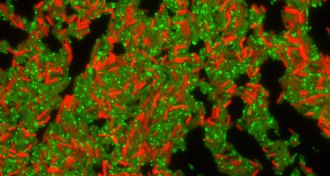 Life
LifeHow bacteria nearly killed by antibiotics can recover — and gain resistance
A pump protein can keep bacteria alive long enough for the microbes to develop antibiotic resistance.
-
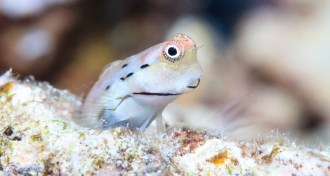 Animals
AnimalsShy fish no bigger than a pinkie provide much of the food in coral reefs
More than half of the fish flesh that predators in coral reefs eat comes from tiny, hard-to-spot species.
By Susan Milius -
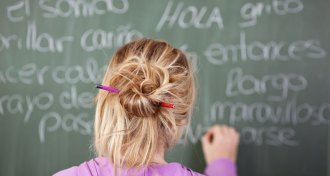 Health & Medicine
Health & MedicineBeing bilingual is great. But it may not boost some brain functions
A large study of U.S. bilingual children didn’t turn up obvious benefits in abilities to ignore distractions or switch quickly between tasks.
-
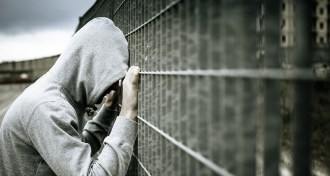 Health & Medicine
Health & MedicineA cognitive neuroscientist warns that the U.S. justice system harms teen brains
The U.S. justice system holds adolescents to adult standards, and puts young people in situations that harm their development, a researcher argues.
-
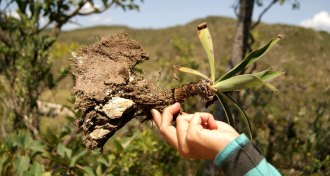 Plants
PlantsSome plants use hairy roots and acid to access nutrients in rock
Shrubs in mountainous areas of Brazil have specialized roots that secrete chemicals to extract phosphorus from rock.
By Yao-Hua Law -
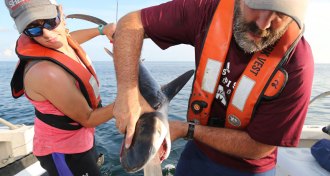 Animals
AnimalsTiger sharks feast on migratory birds that fall out of the sky
Terrestrial birds that fall from the sky during their migration across the Gulf of Mexico can end up in the bellies of tiger sharks.
-
 Science & Society
Science & SocietyHow the battle against measles varies around the world
Measles is a global health threat. Snapshots of several countries show how stopping its spread depends on local conditions and beliefs.
By Sujata Gupta -
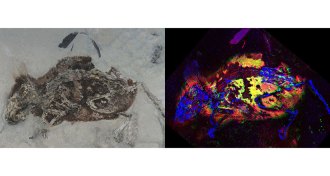 Paleontology
PaleontologySigns of red pigment were spotted in a fossil for the first time
For the first time, scientists have identified the chemical fingerprint of red pigment in a fossil.
-
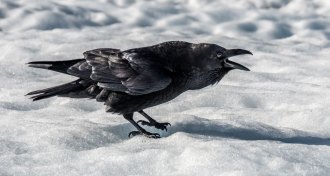 Animals
AnimalsBad moods could be contagious among ravens
Ravens may pick up and share their compatriots’ negativity, a study on the social intelligence of these animals suggests.
-
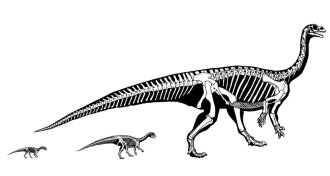 Paleontology
PaleontologyThis early sauropod went from walking on four legs to two as it grew
A new computer analysis shows how Mussaurus patagonicus' center of gravity changed as the dinosaur grew.
-
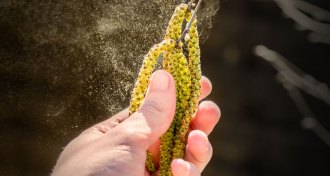 Health & Medicine
Health & MedicineHow allergens in pollen help plants do more than make you sneeze
A plant’s view of what humans call allergens in pollen grains involves a lot of crucial biology. And sex.
By Susan Milius -
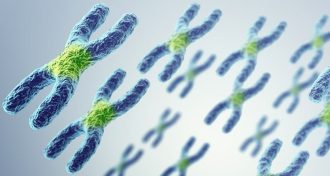 Genetics
GeneticsKey parts of a fruit fly’s genetic makeup have finally been decoded
Jumping genes may make it possible to divvy up chromosomes.